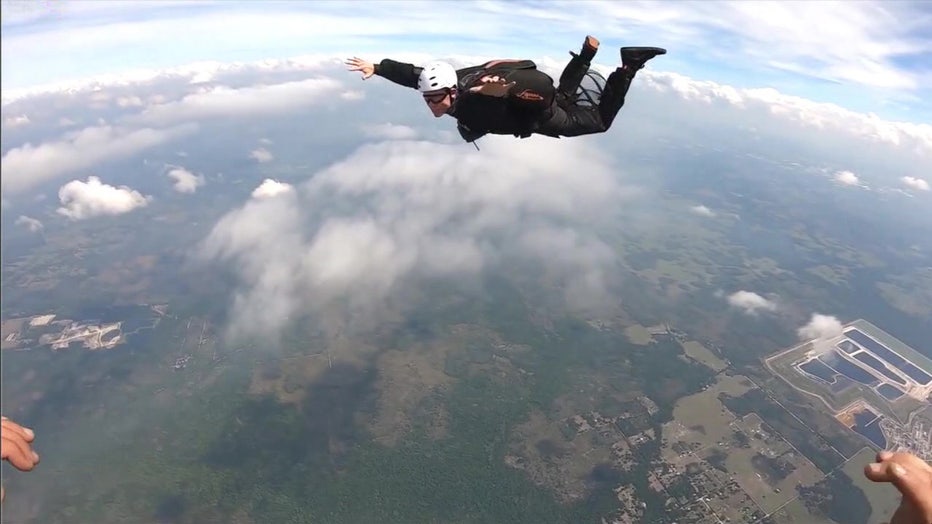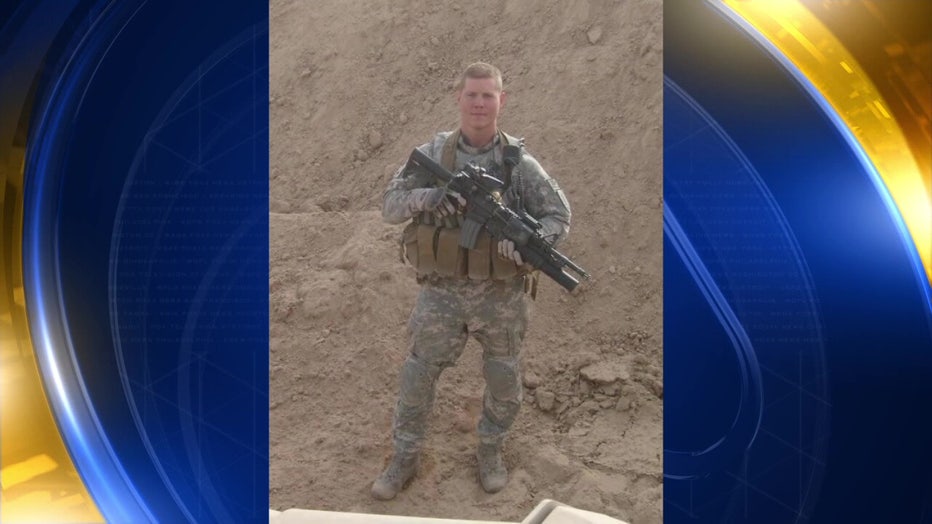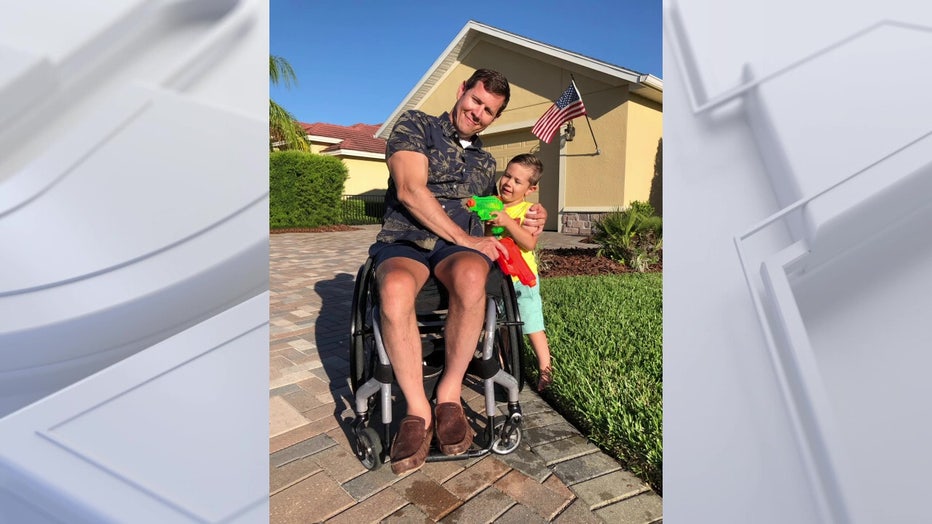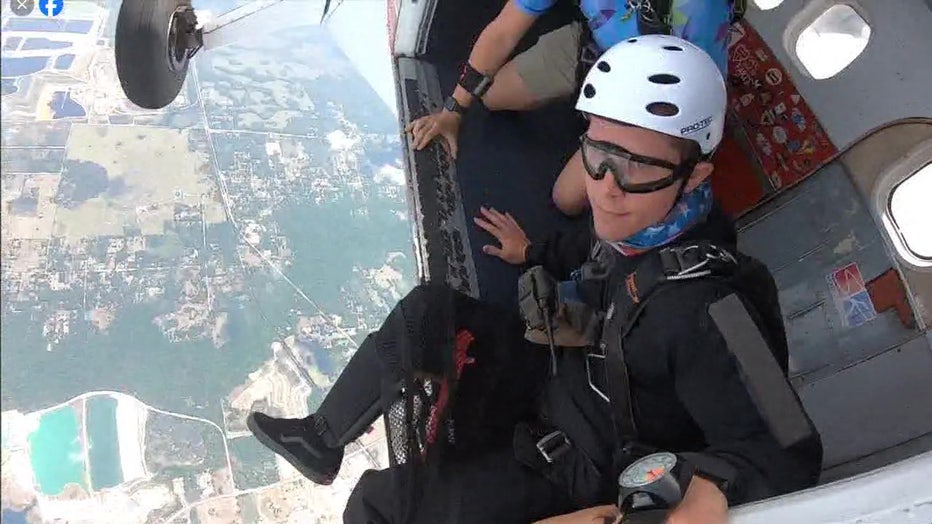Parapelegic veteran thankful for opportunity to skydive
Parapelegic veteran earns solo skydiving license
FOX 13's Walter Allen caught up with Alex Dillman, a veteran who lost the use of his legs serving in the Army. He is now licensed to solo skydive.
TAMPA, Fla. - We first met Alex Dillman in 2019 when he was practicing at IFly in Brandon, working towards the goal of being able to skydive solo.
It wasn't fear holding him back, it was the ability to control his legs during free fall.

"Nothing really prepares you for the intense environment of free fall throughout the sky," Dillmann said. "You could potentially be falling at 120mph and if the body pitch isn't just right, then you could become disoriented, or you could go out of control."
READ: Regret drives wheelchair-bound veteran to fly
Dillman is an Army veteran and while on his second deployment to Afghanistan, his vehicle hit an IED.
Dillmann lost the use of his legs and spent the next two years in recovery.

From 2019 to 2024, a lot has changed.
"Last time we talked, I wasn't jumping out of airplanes. Now, I am jumping out of airplanes" Dillmann told FOX 13. "[In] some weird way... the universe has offered me this opportunity. I was capable of doing it on my own was all I needed, and it sent me on this wild trajectory."
Alex Dillman took a chance, seized the moment, and reclaimed something he hadn't had in a long time.
"Nothing quite like my first solo jump, cause that was my first connection to my old way of life," he said. "Once you do it on your own, you're expected to perform. I haven't been in those circumstances since I was active. I was hooked, I knew this was a piece of the puzzle."

Dillmann initially saw adventure therapy as a way to combat depression and PTSD from his combat injuries that took away the use of his legs.
"[The] great thing about skydiving is that it gets me out of the chair. I don't bring my chair with me, so I'm in a free state. I don't need to be in the chair to perform the act of skydiving."
Dillmann didn't know that this was -- in a way -- giving him that ability back.
"Through the act of free fall, I have a much better connection with parts of my body that I wouldn't normally have those neurological connections with," Dillmann said. "I can feel my legs and my feet to a certain extent. I can get a better sense of my overall being, feel what my legs are doing, feel what my hips are doing. Having that feeling again... even if it's for 30 seconds or 60 seconds... is enough for me!"

It's one thing to accomplish goals that you set out for yourself.
It's another to have your little one looking on while on your journey. A journey that could possibly, for 30–60 seconds, erase an injury.
"With kids, you know... they're always watching, they're always watching. Whether you know it or not, they're watching us. [He's] only seen me in the wheelchair so he knows no different, but he's seen me navigate life and accomplish tasks without the use of my legs."
I want him to see that I'm confident, and to be sure of yourself, and not to shy away from experiences. Throughout this process, he's been able to draw from it, and he can say ‘My dad does that,’ and maybe it's an activity we can do together," Dillmann said.
Dillmann is also part of an adventure therapy nonprofit called "SkyDive First Project".
Their goal is to improve mental health for veterans, first responders, and those with PTSD or depression through adventure therapy using tandem skydiving.

